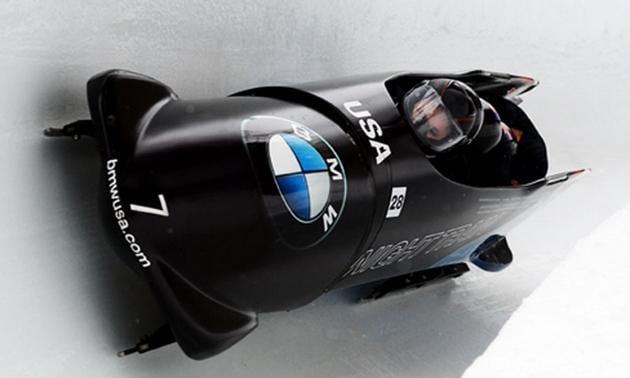 Field service touches nearly every industry. When something needs to be fixed, there’s a tech in the field to get the job done. “The field,” however, can mean anything from an Olympic bobsled track to an entire city that’s seen better days. Here’s a look at some of the more interesting “from the field” stories this week:
Field service touches nearly every industry. When something needs to be fixed, there’s a tech in the field to get the job done. “The field,” however, can mean anything from an Olympic bobsled track to an entire city that’s seen better days. Here’s a look at some of the more interesting “from the field” stories this week:
Mapping Blight in the Motor City
Detroit has last more than half of its population since a peak of 1.8 million residents in the 1950s. A visible consequence of that decline? The estimated 80,000 abandoned buildings throughout the city. Detroit is fighting back with an ambitious plan to map every building in the city, within a single database, every abandoned building in the city, according to NPR. It’s a massive undertaking, involving three-person teams who canvass the city’s 139 square miles.
The city teamed up with Loveland Technologies, a mapping technology company, to use a new mobile mapping tech called “blexting.” It allows technicians and regular citizens alike to send photos and information about blighted properties to the central database. It’s crowdsourced field service on a large scale.
Read more at NPR and The New York Times
New Fuel Efficiency Standards for Heavy-Duty Trucks
This week, President Obama set in the motion the next wave of fuel efficiency standards for heavy-duty trucks, according to the Washington Post. The new regulations, which wont’ take effect until 2016, will affect large trucks, “which encompasses all vehicles weighing more than 8,500 pounds, rang[ing] from large pick-up trucks and school buses to massive 18-wheel tractor-trailers,” writes the Washington Post.
In his speech announcing the new regulations, Obama mentioned that heavy-duty trucks account for a disproportionate percentage of carbon emissions. Industry reactions are mixed. Environmental groups and shipping companies such as FedEx, which manage large fleets and have invested in low emission vehicles voiced support for the new regulations. Some trucking industry organizations, however, are concerned that the regulations with pinch companies with smaller fleets.
Read more at The Washington Post
The Leap from NASCAR to Olympic Bobsledding
From professional snow- and ice-makers to people who create the perfect ice skating blades, the Olympics have shined a light on the niche field service jobs that keep the games going. Add bobsled technician to the list. Richard Laubenstein is part of a 3-man bobsled technician crew that keeps Team USA’s BMW-made bobsleds in working order. Laubenstein, who’s from eastern Pennsylvania, worked as a technician with Penske Racing, a team that competes in IndyCar and NASCAR races. He found the bobsled job posting on a racing job board and jumped at the opportunity.
Turns out, bobsleds and race cars have more in common than you might think.”After I started, I found out more and more people from racing backgrounds, not only in the U.S. but from around the world, are involved in this,” Laubensten tells The Morning Call (LeHigh Valley, Penn.). “Whether it’s working on cars or bobsleds, we want to make them go fast.”
Read more at The Morning Call
Tech-Turned-Franchise Owner
How’s this for a feel-good field service story: Pete Robinson broke into the automotive industry as an apprentice technician nearly 25 years ago, and he’s now the proud owner of a Meinke Car Care franchise in Denver, N.C. Robinson worked his way through several roles, learning the ins and outs of the industry and customer service. In 2010, Robinson and his wife, Julie, opened their own franchise. Robinson has some advice for aspiring franchisees — though it’s good advice for any service organization owner: “Be very involved with your business. Don’t expect a franchise not to require your time and attention,” Robinson tells Entrepreneur. “If you expect to buy a franchise and never show up at your business until the end of the week when the bank deposit is ready, I believe that’s a recipe for disaster.”
Read the full interview at Entrepreneur
Field Service Techs Wanted by …. Google?
Google announced plans to expand its ultra-fast Internet service, Fiber, to additional U.S. cities following successful pilots in Kansas City; Provo, Utah; and Austin, Texas. The Internet giant is investigating Fiber’s feasibility in 34 additional markets, including Nashville, San Antonio, Atlanta and Phoenix. The winning cities won’t be notified until later this year, but it could mean a hiring boom for local technicians.
Google intends to use existing infrastructure as much as possible, but such a large-scale project will require plenty of technician hours to survey, dig, install and connect the network. Keep an eye on the wanted ads!
Read more on Google’s Fiber blog and Stuff

Share this: